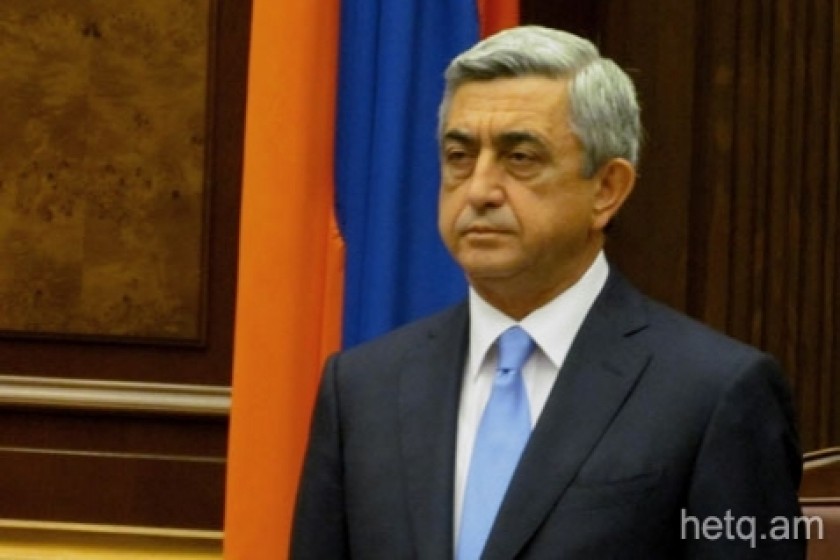
Official Secret: Who is the President Pardoning and Why?
The last time the public in Armenia heard about a pardon signed by the president was in 2009 when a statement was issued about an amnesty covering 16 people who had been sentence to from 2-3 years in the public protests of March 1, 2008.
However, this was the only report of a presidential pardon that I found on the president’s website. As to whom President Sargsyan has pardoned prior to and after this remains a mystery.
What we do know is that 424 prisoners petitioned the president for pardons last year. Of these, only 23 were granted. Most of those who received pardons had been found guilty of minor offences. This is what I was told by Jemma Hakobyan, who heads the Amnesty, Citizenship, Awards and Titles Department at the Office of the President of Armenia.
But we still don’t know the names of these 23 prisoners or why they were chosen and the other 401 rejected. The president’s office keeps this information under lock and key.
When Hetq requested the names of the 23 pardoned prisoners, we were told that such presidential pardons are regarded as “individual legal acts and thus not subject to publication, except in cases defined by law.”
The statement also argued that pardon decrees contain information of a personal nature which, according to the constitution, cannot be divulged or disseminated without the consent of the individuals involved.
Ani Torosyan, a member of Armenia’s Chamber of Advocates, believes that the president’s pardon decrees should be made public given that such decrees do not and cannot contain personal information.
Torosyan argues that based on the same argument, court decrees should not be publicized as well, but in fact they are in the official DataLex Judiciary Portal. Torosyan points to the illogical reasoning in such an approach regarding the non-publication of pardon decrees.
Torosyan says that even if we regard pardon decrees as individual acts, according to Article 51, Part 4 of the RA Law on Legal Acts: “Individual decrees and executive orders of the President of the Republic of Armenia shall be promulgated by the President of the Republic of Armenia and shall enter into force within the terms and as prescribed in Article 60 of this Law.”
Thus, in all cases, the decrees noted above are subject to publication.
Hetq also spoke to other lawyers (Ara Ghazaryan, Artak Zeynalyan and Ara Zakaryan) who also provided the same explanation, pointing out that according to Article 59 of the same law, “Only those legal acts or certain parts thereof, which contain state or other secrets protected by law, shall not be subject to promulgation.”
“Regardless of how discretionary the president’s authority to grant pardons, nevertheless, he cannot exercise or not exercise that authority arbitrarily,” observed Artak Zeynalyan
We should note that according to Article 55 Point 17 of Armenia’s Constitution, the president has the right to grant pardons. In 2003, Armenia’s president even signed a decree on pardon procedure. (Armenian)
The institution of granting pardons, whether by a president or monarch, is one of the oldest institutions of criminal law.
Even though figures like Kant and Voltaire criticized acts of clemency as pardoning those who enjoyed the patronage of the king, it is an institution that has survived until today.
It defines the degree of humanism and benevolence of a given nation’s ruler. Pardons are often granted for to gain political favor during election cycles.
There are countries that often grant pardons for those who have committed serious offences. In Holland, those sentenced to life imprisonment can petition the queen for a pardon after serving twenty years. There are only two convicts in Holland that have served more than twenty years of their sentence.
Last year in Armenia, six individuals sentenced to life imprisonment petitioned President Sargsyan for a pardon. None were granted. Such a precedent doesn’t exist in Armenia.
 Videos
Videos Photos
Photos




Comments (2)
Write a comment